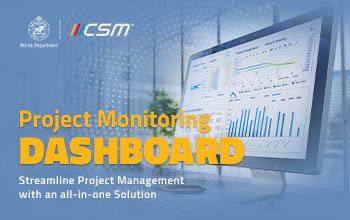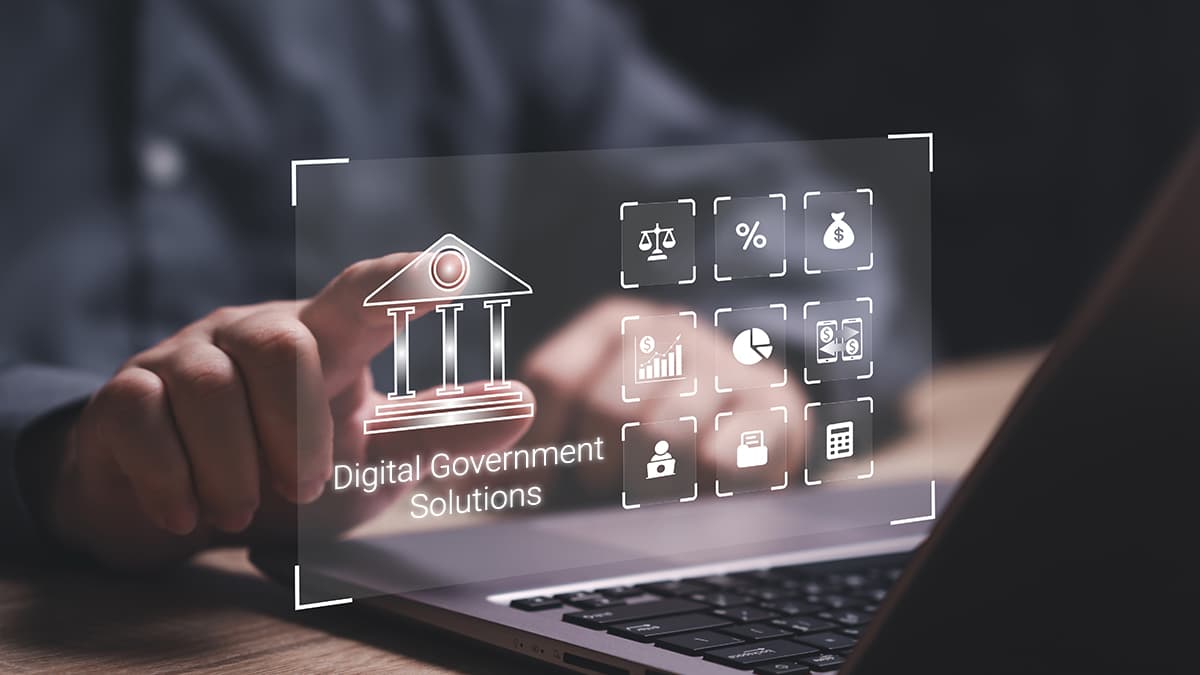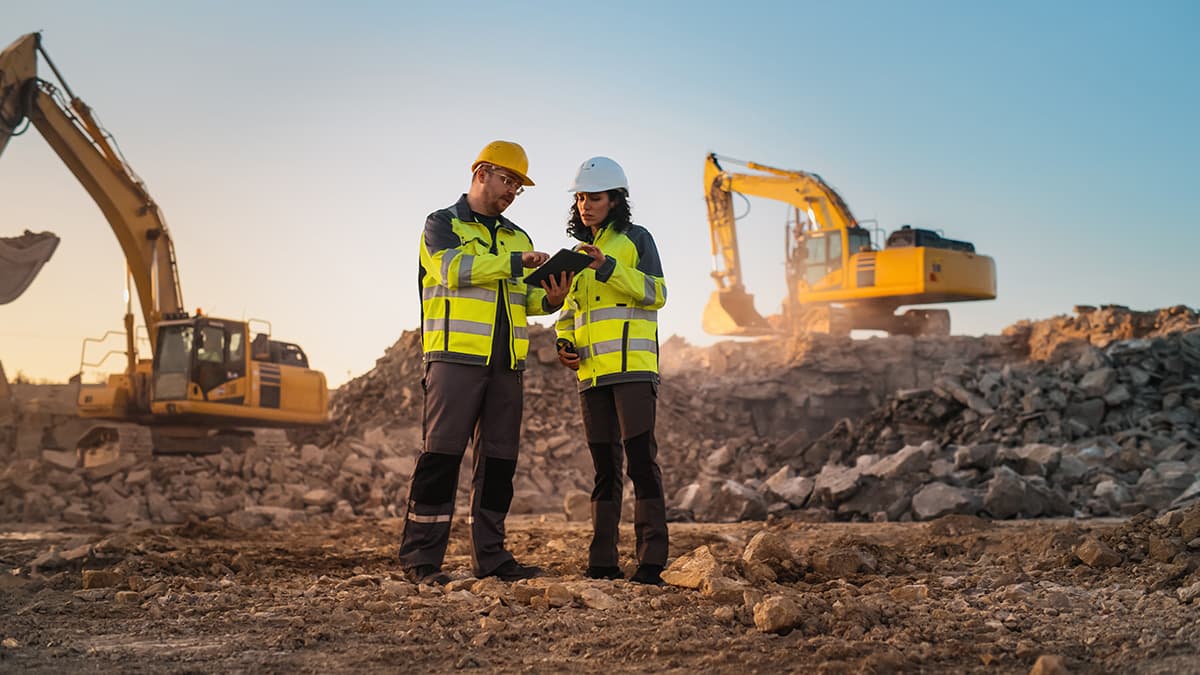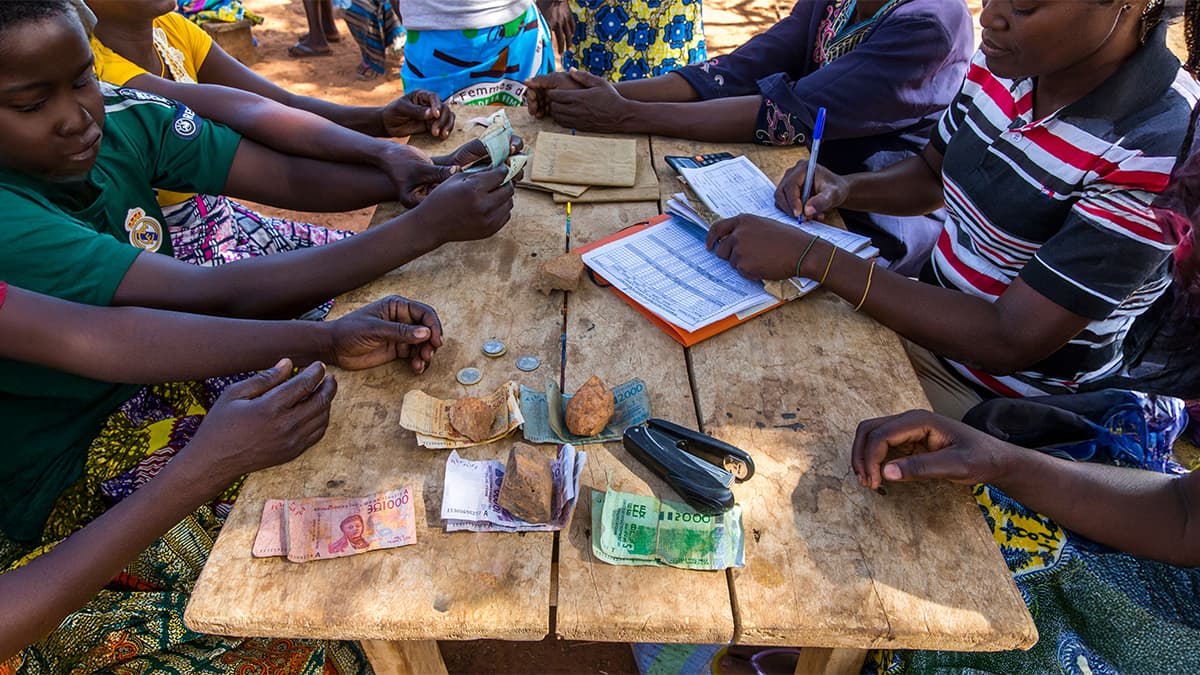.jpg)
Think Mining 4.0, and you conjure up sights of digitally connected mines. We realize how emerging technologies like Artificial Intelligence (AI), Machine Learning (ML), blockchain, and Augmented Reality/Virtual Reality (AR/VR) have incredibly transformed mining operations. However, digital transformation hasn't entirely caught up with the African mines.
Now, the obvious question- why do Africa's mines need to embrace digital transformation? Mineral resources play a vital role in Africa's economy, serving as a major source of revenue. In 2019, minerals and fossil fuels made up over a third of exports for at least 60 percent of African nations. Africa boasts impressive numbers, producing approximately 80 percent of the world's platinum, two-thirds of its cobalt, half of its manganese, and a significant amount of chromium. With such a robust position in the global market, Africa is poised to reap the benefits of increasing demand for these valuable minerals.
The missed opportunity of digitalization- Time for Africa to act now
Digital transformation can emerge as a game-changer, presenting new opportunities for efficiency, safety, and sustainability. Africa can't let go of missed opportunities when advanced analytics can optimize mine planning, increase yields, and reduce equipment downtime. In South Africa, a 30-year-old mine boosted its mineral recovery by 2 percent by applying advanced analytics to its main processing steps. The Syama mine in Mali is another notable example of how digitalization can revolutionize operations. In 2015, Resolute Mining assumed control of the site and turned it into the world's premier purpose-built automated mine.
Counting the benefits
Enhancing Security and Safety: In the mining industry, safety is a top priority, and digitalization is a game-changer for keeping workers safe. By using IoT sensors throughout the mine to monitor air quality, temperature, and equipment conditions, we can gather valuable data in real-time. With the help of AI and ML, we can analyze this data to quickly identify potential safety hazards and issue early warnings.
Environmental stewardship and ESG compliance: In Africa's mining industry, digitalization can be crucial in promoting sustainability and environmental stewardship. By optimizing processes and reducing waste, mines can significantly lessen their environmental footprint. For example, mines can track energy usage, pinpoint inefficiencies, and introduce energy-saving strategies through AI-driven analytics. Embracing current and upcoming technologies will propel African mining companies into the future and enable them to tackle important ESG issues.
Enhancing Resource Governance and Openness: Digitalization is a game-changer when it comes to resource governance and transparency in Africa's mining industry. Take blockchain technology, for example. It's like a super-sleuth that creates a foolproof record of mining activities, making sure everything is above board and following the rules. By embracing these technologies, African mining companies can level up their tech game and deepen their commitment to ESG standards.
Tackling digital divide and ensuring inclusion: To promote the widespread use of digital technologies, we must first tackle infrastructure challenges such as poor internet connectivity and unreliable power supply. Additionally, investing in the training and development of the mining workforce is crucial to ensure that mine workers are equipped to harness the full potential of digital tools.
Knowing the challenges and surmounting them
Many mining companies are hesitant to invest in new operations in Africa due to concerns about the regulatory framework and the ability of governments to enforce compliance. It's time for governments to step up and change this perception. The benefits of digitalization in mining extend beyond just the companies themselves - they can also boost the economy and benefit local communities. As mines become more efficient and profitable, national governments will have more funds to invest in much-needed infrastructure like roads, schools, and health clinics.
A recent study found that the unstable geopolitics in certain African regions present significant challenges to the mining industry's supply chain. Issues such as human rights violations, supply chain management, traceability, child labor, and environmental degradation are all areas of concern. It's clear that there is work to be done to ensure that mining operations in Africa are not only profitable but also ethical and sustainable.
How CSM Tech can help with its Mining Stack
.jpg)
CSM Tech has bundled all its mining solutions into a single stack called IntegratORE. We have successfully designed and deployed our suite of mining solutions across multiple states in India. Given the right opportunity, we can replicate our expertise in Africa’s mines either as full-stack offerings or unbundled, bespoke solutions. Whether it is real-time visibility on traceability and movement of minerals, in-mine logistics, AR-based contactless mine sampling, automation of mineral concessions, pilotless surveillance with drones or taking care of the regulatory compliance, CSM Tech offers the whole bouquet of solutions.
Digitally connected mines have a green future, too
Mines that fully embrace digital transformation are like the cool kids on the block - they're more productive, efficient, and environmentally friendly. They're setting the bar high for health and safety standards and helping workers learn new skills. In a nutshell, they can shake up Africa's mining sector. The benefits of going digital, if done right, totally outweigh the risks.
Jumping on the tech bandwagon is crucial for the resilience and sustainability of the African mining industry, propelling miners from Mining 2.0 to 4.0. Sure, the initial costs sting a bit, but the long-term payoff should bring in profits, jobs, and a boost in ESG performance.
An exciting new era is on the horizon for African miners, and it's looking green too.


























































We will verify and publish your comment soon.